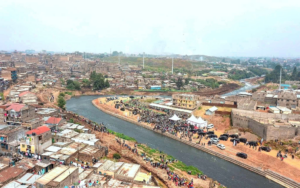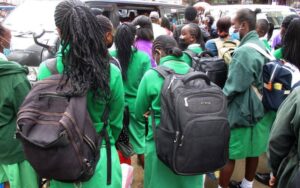Last Friday, I visited the farm of 86-year-old Mike Harris with my prayer group. Before we saw him, a 75-year-old gatekeeper slowly got up to greet us, bent by age, but still happily working.
Naturally, we asked Mr. Haris about him. His reply was quiet, but unforgettable.
“He was supposed to retire 20 years ago,” he said. “But every time we got close, he would ask to stay on. He still had children in school. He needed the salary.”
That moment pierced my heart because it wasn’t just a story about one man still guarding a farm gate at 75; it was the story of a nation’s quiet injustice. A generation is working far beyond its strength, not out of choice but out of desperate necessity.
Mr. Haris remains a remarkable exception. At 86, he is still active, cheerful, and mentally sharp. As the founder of Kijito Windpower, he has installed over 700 windpumps since the 1980s, bringing water and hope to some of East Africa’s driest regions. Today, he continues to tend and export his avocados and chilies, a living symbol that purpose can endure. Yet his dignity stands out in a nation where most of his peers are quietly left behind.
Kenya now has more than 2.9 million people aged 60 and above, according to 2024 estimates by UNFPA and the Kenya National Bureau of Statistics. That number is expected to double by 2050. Yet, nearly 60 percent of Kenyans aged 70 and above face poverty or food insecurity. Many eat once a day or rely on distant relatives, if any. They remember building this nation, but the nation rarely remembers them.
We often call the Inua Jamii program a national safety net for older adults. It currently reaches around 1.2 million seniors, giving a KSh 2,000 stipend every two months, with plans to grow to 1.75 to 2.5 million households. However, as reports indicate, more than a million people don’t receive anything due to complicated enrollment procedures, biometric mistakes, and red tape. For those who do get support, it barely meets the full scope of their needs.
Loneliness worsens the crisis. According to WHO, one in three older Kenyans suffers from chronic isolation. Many are emotionally neglected long before they are laid to rest. Those who once built homes and raised families now face neglect, especially if they have dementia or disabilities. Clinics rarely provide geriatric care, and many are misdiagnosed or dismissed as burdens.
In countries like Japan, seeing a 75-year-old still working is common. But here, elders work by choice. They are respected, supported, and socially included. In contrast, in Kenya, most elders who work do so because they have to. There is no pension safety net, no dignity in fallback options. It’s just about survival.
This isn’t the future our Constitution envisioned. Article 57 guarantees dignity and care for the elderly, yet these rights still exist only on paper. When a 75-year-old begs to keep his job to support his children, the system has failed.Period!
The damage is severe, but solutions are within reach.
First, Inua Jamii should be expanded to include all Kenyans aged 60 and above. Dignity should not be selective. Second, all healthcare workers must be trained in geriatric care so that the elderly are treated with respect, not dismissiveness. Third, every county must establish elder care centers where older citizens can receive food, attention, and companionship. Fourth, we need to launch national volunteer networks, starting with churches, schools, and youth groups, to support and accompany the elderly. And finally, we must stop treating elder care as a private matter; it is a national responsibility.
As we left the Haris farm, the windmills turned, steady and worn, like the elders of this land. They built this nation. Now they sit alone. A forgotten generation is not just a crisis. It is a moral collapse. Think green, act green!



